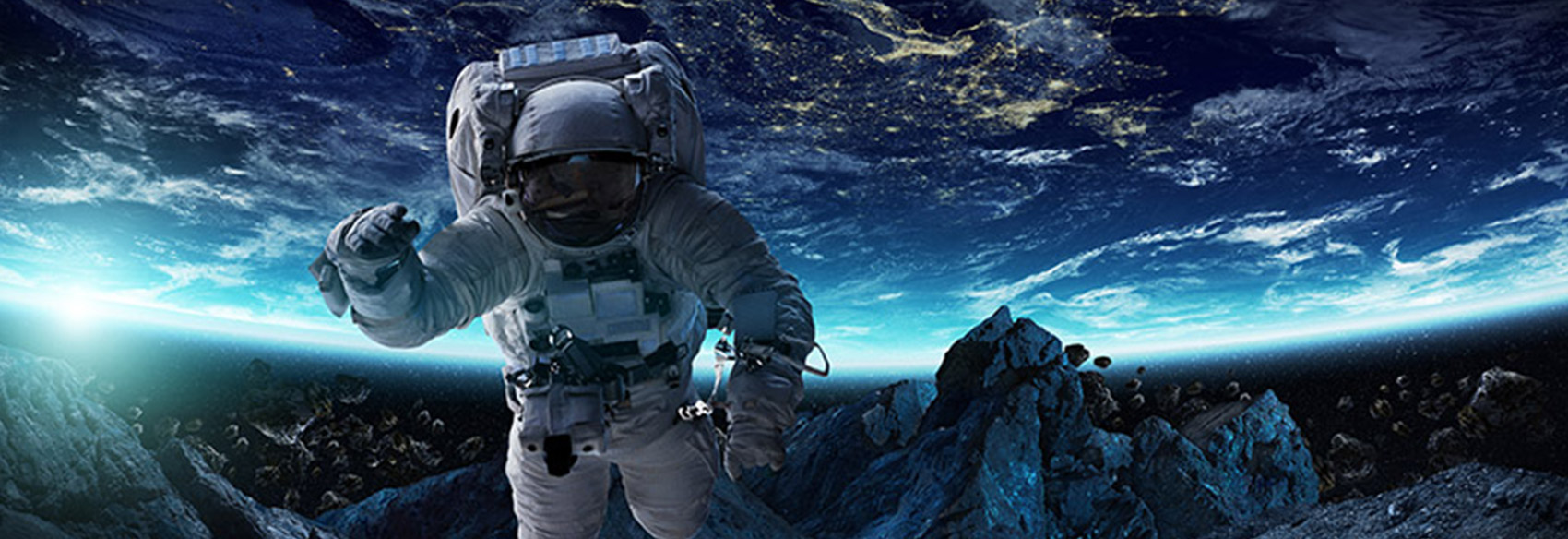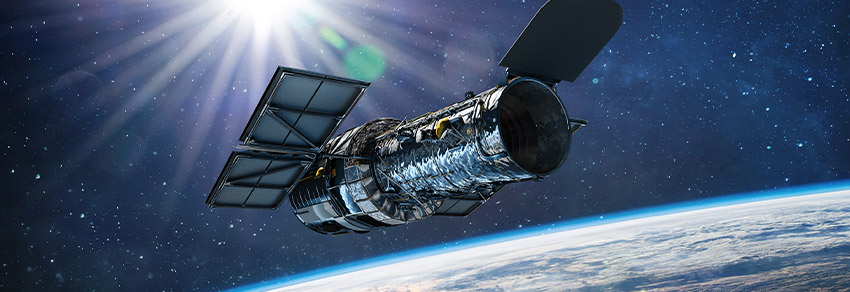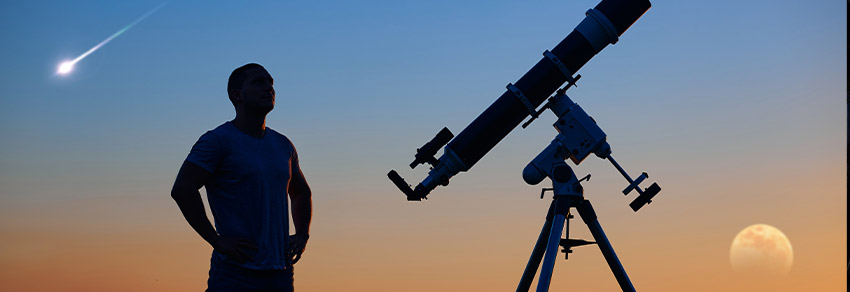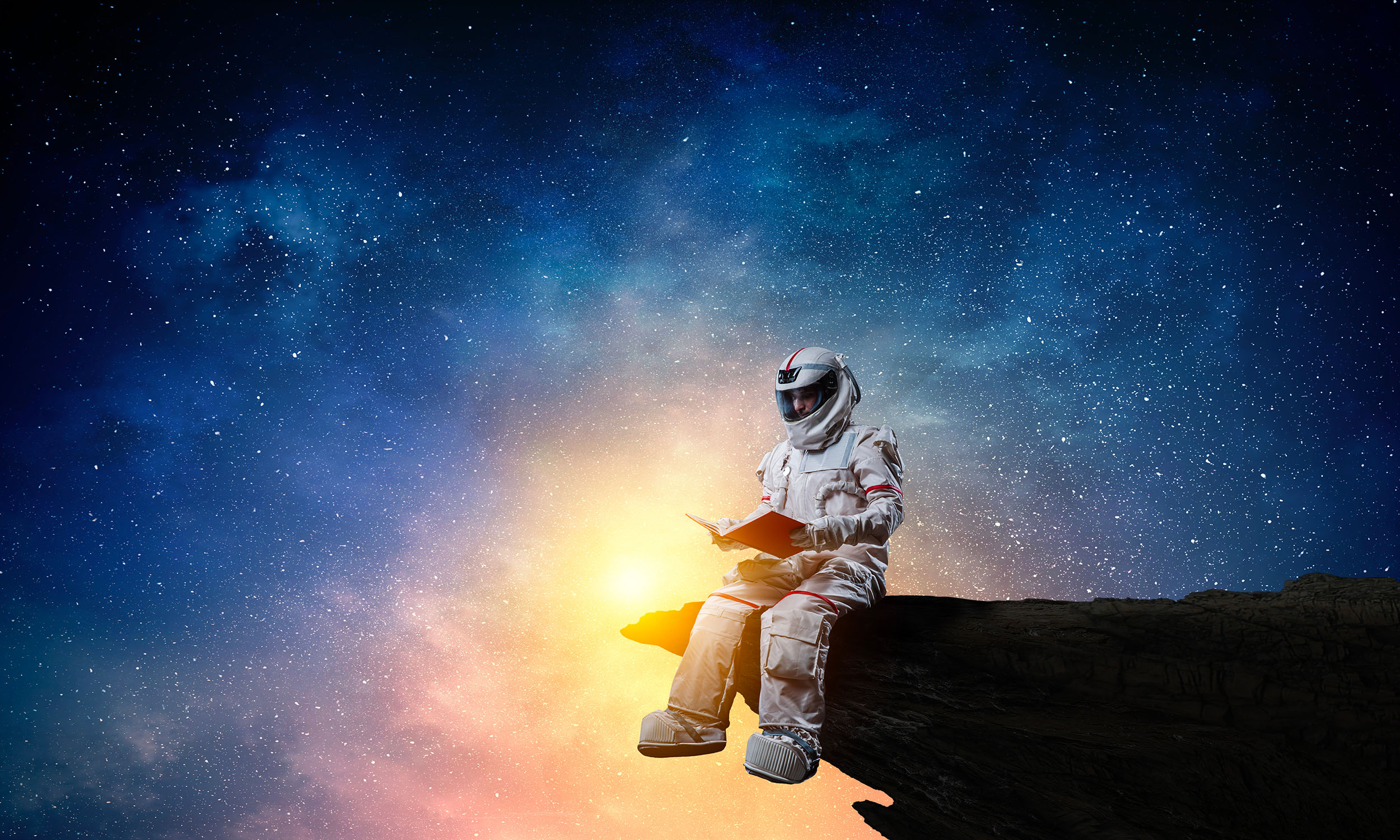Courses
Upcoming Courses 2024-2025
Introduction to Space Medicine

This introduction to Spatial Medicine is designed for non-specialists and will offer an introduction to the space environment. It will subsequently provide an insight on space physiology and medicine, considering the impact of space flights on health and the associated adaptations and modifications of the human body (metabolism, bone and muscles, sleep, cells and molecules…). It will also give an overview of the different types of risks for health existing in Space environments and on possible solutions to monitor and solve a health problem during space flights (use of medication, oral biology…). The different models for ground simulation of spaceflight effects will also be presented. Finally, it will help students to better understand the link between Space, Medicine technology and cognitive sciences. Thanks to an introduction to space applications for health on Earth, the students will be involved in practical cases on how to collect health data in spaceflights and simulation experiments.
The course level and contents will be adapted according to the existing programmes in which it will be integrated (most probably Bachelor last year/Master 1 level) but a scientific background is needed. The idea is to offer this introductory course to future engineers or entrepreneurs who will work on space applications linked to Health and Medicine and who will need a global overview combining basic knowledge of medicine and of the major issues/challenges regarding Health and Space.
Dates of the course
24 february 2025 to 13 May 2025
Teachers
- Vsevolod Peysakhovich
- Anne Pavy-Le Traon
- Florent Destruhaut
- Safouane Hamdi
- Sara Laurencin
- Laure Boyer
- Claire Laurens
- Veronica Pereda-Loth
- Mateusz Daniol
- Jessica Körning-Ljungberg
Universities involved
- Université Paul Sabatier Toulouse III (UT3) – University of Toulouse /MEDES – Institute for Space Medicine and Physiology ISAE-SUPAERO
- AGH University of Science and Technology
- Luleå University of Technology
Profile and prerequisites
- Bachelor’s (year 3) or Master’s level
- Technological background: students with scientific and/or engineering profiles with a specific interest in health and medicine.
- English level B2.
Teaching language(s)
English
Teaching modalities
On-campus OR online asynchronous (learning resources are designed to be accessed at any time) – online synchronous (meets at scheduled times via Zoom)
Student mobility
Not obligatory, could be discussed if requested
Organisation of student evaluation
MCQ (75%)
Practical (25%)
Contact information
vsevolod.peysakhovich@isae-supaero.fr
The course is open to students from these universities
UT, AGH, LTU
Other universities: If requested. Any request must be addressed via the UNIVERSEH representative of the partner.
How to apply
Send a small “mail of motivation” to contact info.
Credits
3 ECTS Credits
To view the course on Moodle, you need to log in as a guest or with your account if you have one.
Cubesat platform: an introduction

The project is an introduction to the management of the satellite platform in terms of communication, electronics (digital and analog), power management, thermal management). It is based on the use of realistic, low-cost models of 2U cubesats, including all the functions of the nanosatellite, including:
- On Board Computer, CPU
- Communication cards
- RF frontend card
- Power management cards
- Sensors
- GPS
- Inertial unit
- Payload cards (camera)
- Solar panels
Dates of the course
20 January 2025 to 28 April 2025
- Gaëtan Prigent
- Oliver Bernal
- Anne-Laure Franc
Universities involved
Toulouse INP – University of Toulouse
Profile and prerequisites
- Master’s level
- Automation
- Matlab Simulink
- English level B2
Teaching language(s)
French and English
Teaching modalities
On-campus + online synchrounous (meets at scheduled times via Zoom)
Student mobility
Not required
Organisation of student evaluation
Project-based assessment: video clip, peer-review
Contact
anne-laure.franc@laplace.univ-tlse.fr
The course is open to students from these universities
Course open for UT and LTU students
Credits
3 ECTS Credits
To view the course on Moodle, you need to log in as a guest or with your account if you have one.
English C1: Terms and Concepts of Space

This is a multidisciplinary course. Students will explore the world of Space, while improving their professional English for their future studies and employment opportunities. Participants will also understand terminologies and concepts for fields relevant to the space sector as part of the UNIVERSEH programme (e.g. “space, earth, natural sciences, medicine, humanities”) and contribute to the development of an illustrated Dictionary of Space Concepts that we are developing in cooperation with the Computer Linguistics Dept. There will be many opportunities to practice different text styles, such as interviewing, biographical notes, reports, and reflection writing. As an online course, digital media are endemic to the classroom environment, and the synchronous meetings will be supplemented with asynchronous tasks that will help students prepare for class and apply their newly acquired knowledge and skills. Continuous cooperation, peer review, video creation, and illustrations for the DSC, will result in a tangible product at the end of the term.
Dates of the course
From October 08 2024 to January 28 2025
Teachers
- Anna Krukiewicz-Gacek
- Senay Akar-Ben Bey
Universities involved
Heinrich Heine University Düsseldorf
AGH University of Science and Technology
Profile and prerequisites
The course is open to all interested students.
English level B2
Teaching language(s)
English
Teaching modalities
Online. You will need to be available on Tuesdays from 14.30 to 16.30.
Student mobility
Not required
Organisation of student evaluation
Dictionary entries, self-reflection essay, possibly elevator pitch
Contact information
spz-universeh@hhu.de
The course is open to students from these universities
The course is available online to all students without travel requirements
Credits
3 ECTS Credits
To view the course on Moodle, you need to log in as a guest or with your account if you have one.
Arctic Winter School

Arctic Winter School is an introductory course for students from different academic fields and from all UniversEH partner universities that gives insight into the interdisciplinary fields of Arctic space, environment and culture:
- Environment and society in the changing Arctic. The Arctic Five collaboration.
- Polar atmosphere and its significance for solar-terrestrial interactions, space weather.
- Auroral physics and observations.
- Optical phenomena in the polar regions.
- Snow and ice in different perspectives.
- Arctic climate systems and climate change.
- Nano satellites and balloons for polar research.
- Product innovation for Arctic space.
- Terminology for New Space and polar research, linguistic aspect of intercultural communication.
- Survival in the cold environment.
The 1st week of the School is taking place at Luleå University of Technology, Kiruna Space Campus and includes lectures and workshops. During the week in Kiruna there will be study visits to Esrange Space Center, the Swedish Institute of Space Physics (IRF) and EISCAT Scientific Association. The week will also include study visits to Abisko Scientific Research Station, LKAB iron ore mine, ICEHOTEL in Jukkasjärvi. There will be both cultural and social activities.
The learning outcomes are assessed through assignments, workshops and project.
More info: here.
Dates of the course
3 to 7 March 2025
Teachers
- Victoria Barabash
- AnnaCarin Larsson
- Anna Krukiewicz-Gacek
- Dag Avango
- Mathias Milz
- Thomas Kuhn
- Rene Laufer
- Peter Törlind
- Josiane Mothe
- Nina Lintzen
Universities involved
Luleå University of Technology
AGH University of Science and Technology
University of Toulouse
Profile and prerequisites
Bachelor’s (all years) or Master’s level
In order to meet the general entry requirements for first cycle studies you must have successfully completed upper secondary education and have documented skills in English language. Exemption for Swedish A and B / Swedish 1-3. and ,exemption for Swedish A and B / Swedish 1-3. University studies of at least 7,5 hp.
Teaching language(s)
English
Teaching modalities
on-campus + online asynchronous (learning resources are designed to be accessed at any time) + online synchronous (scheduled meetings via Zoom) Online learning will take place before and after this period, with asynchronous resources and optional tasks available.
Student mobility
Students mobility in February-March 2025, in Kiruna, exact dates to be determined.
Organisation of student evaluation
Workshops, field practicals, project in Space for a Sustainable Arctic
Contact information
victoria.barabash@ltu.se
annacarin.larsson@ltu.se
The course is open to students from these universities
Open to students who can make a short mobility for the period of February TBC – March TBC
How to apply
The students apply at their home universities. Nominations are sent to LTU for further registration.
Credits
3 ECTS Credits
To view the course on Moodle, you need to log in as a guest or with your account if you have one.
Summer School

Over a two-week period, the TIRIS Summer School 2025 is designed to meet the needs of international students around the critical issues of space and sustainability.
You will benefit from excellent interdisciplinary training, combining practical workshops, inspiring lectures and exchanges between experts. You will also get the chance to discover Toulouse, European capital of space and aeronautics, while earning ECTS credits towards your degree.
TIRIS Summer School 2025 is part of a unique dynamic, driven by the TIRIS project and supported by UNIVERSEH and the University of Toulouse.
By combining science, technology and societal reflection, TIRIS Summer School 2025 aims to train you as tomorrow’s leaders, capable of imagining innovative solutions to climate and space issues.
Universities involved
- Université Paul Sabatier Toulouse III (UT3) – University of Toulouse
- ISAE supaero
- INSA Toulouse
- TSM Education
Profile and prerequisites
For Master M1 or M2 Level, PhD students.
B2 English
Dates of the course
30 June 2025 to 11 July 2025
Student mobility
Toulouse, France. Two weeks from June the 30th to July 11th 2025.
Teaching modalities
- on-campus
- online asynchronous (learning resources are designed to be accessed at any time)
- workshops
Contact information
summerschool-tiris@univ-toulouse.fr
Credits
3 ECTS Credits
To view the course on Moodle, you need to log in as a guest or with your account if you have one.
Let’s talk über l’espace – Trilingual Online Course: French, English and German

Dates of the course
10 April 2025 – 17 July 2025
16:30 – 18:00
Registration deadline
04 April 2025
Teacher(s)
Senay Akar-Ben Bey
Laetitia Collin
Dariusz Kaluza
Profile and prerequisites
English level B2 (finished), German and French level A2 (finished)
Teaching language(s)
English, German, French
Credits
3 ECTS
Format
Online course
You will receive the access data shortly before the course starts.
Hosted by
Heinrich Heine University, Düsseldorf
To view the course on Moodle, you need to log in as a guest or with your account if you have one.
Spring school

We propose the students to discover several aspects of the space sector, from engineering and science to humanities, during a Spring School at Euro Space Center and ESA-ESEC (European Space Security and Education Centre), Belgium. The school is oriented towards a large audience, gathering STEM or non-STEM students, to allow them to discover some of the many faces of the space sector. The Spring School will be given in English. For external students that are not following the astronomy lecture (SMAT B213), preliminary online events will be provided for settling the context and some basic scientific knowledge about space. The Spring School will include plenary general conferences on various topics (space law, medicine, rocketry, satellite operations, cybersecurity, etc.), team-building activities inspired by astronaut training at the Euro Space Center (the only space-themed park in Europe), visits of the ESA Academy facilities and ESEC-Redu station, a cosmicathon (team-based challenge around space mission design), planetarium and stargazing sessions, etc.
Dates of the course
21 April 2025 to 27 April 2025
Teachers & Speakers
- André Füzfa (University of Namur) : Basics of astrodynamics
- Loredana Santo (University of Rome – Tor Vergata) : Smart materials for space applications, space sustainability
- Mahulena Hofmann (University of Luxembourg) : Space Law
- Jacques Arnould (CNES) Ethics for a Better Mankind in Space
- Alain De Neve (Defence Analyst at Belgian Royal Military Academy): Space Defense
- Marc Toussaint (ESA/EPFL): Launchers & Rockets
- Christophe Bénaroya (Toulouse Business School) : New Space and aerospace management
- Fabienne Delhaise (ESA) : Ground Segment of Space Missions
- Alessia Sanna & Alexandre Weisser (artists) : Space and arts
- Alix de Beusscher (Aerospace Lab) : Robotics satellite engineering
- Elisa Tasev (Royal Observatory of Belgium) : Planetary Defense
Universities involved
University of Namur
University of Luxembourg
University of Rome “Tor Vergata”
Profile and prerequisites
Bachelor (all years), Master’s, and PhD levels.
Entry-level activity to space topics, from scientific, technological to arts and societal aspects Broad range from Bachelor to PhD ; accessible to both STEM and non-STEM profiles
Teaching language(s)
English
Teaching modalities
Online synchronous (3 sessions before the physical mobility)
Student mobility
Student mobility from April 21 to 27, 2025, in Namur
Organisation of student evaluation
Group concept study on a fictitious space mission (2024: Asteroid mining during Apophis 2029 closest approach) Statement given in the last preparatory remote session ; working sessions scheduled during the school; final presentation on the last day of the school
Contact
andre.fuzfa@unamur.be
The course is open to students from these universities
Open to all
Credits
3 ECTS Credits
To view the course on Moodle, you need to log in as a guest or with your account if you have one.
French as Foreign Language Course A1.2

Develop your French language skills with our A1.2 online course, designed to enhance your communication abilities in a structured and engaging way. This course builds on foundational knowledge, focusing on practical language use in everyday situations such as introductions, making appointments, and discussing personal interests. You will refine your grammar, pronunciation, and listening comprehension while exploring key aspects of French culture, including traditions and daily life. Through interactive exercises and structured practice, you will gain the confidence and skills needed for effective communication in French.
Dates of the course
17 February 2025 – 12 May 2025
17:00 – 19:00
Registration deadline
16 February 2025
Teacher(s)
Caroline Baranger
Profile and prerequisites
You have a level of A1.1
Teaching language(s)
French
Format
Online course
You will receive the access data shortly before the course starts.
Hosted by
Université de Toulouse, France
To view the course on Moodle, you need to log in as a guest or with your account if you have one.
Intensive German A1.2

The aim of the course is that students
– can understand and use familiar everyday expressions and very basic phrases aimed at the satisfaction of concrete needs.
– can introduce themselves and others and can ask and answer questions about personal details such as where they lives, people they knows and things they have.
– can interact in a simple way provided the other person talks slowly and clearly and is prepared to help.
Dates of the course
07 March 2025
11 March 2025
13 March 2025
14 March 2025
18 March 2025
20 March 2025
21 March 2025
25 March 2025
27 March 2025
28 March 2025
16:00 – 18:00
Registration deadline
28 February 2025
Teacher(s)
Sarah Anna Weigend
Profile and prerequisites
The course is open to all interested students.
German level A1.1
Teaching language(s)
English
Format
Online Course
You will receive the access data shortly before the course starts.
Hosted by
Heinrich Heine University, Düsseldorf
To view the course on Moodle, you need to log in as a guest or with your account if you have one.
Master’s Degree in Space Technologies

Space Technologies Master’s Degree Programme at the AGH University of Krakow
Course description
A graduate of the second-cycle Space Technologies program will possess advanced interdisciplinary skills tailored to the demands of the modern space sector. Building on their first-cycle education, students gain expertise in key areas such as spacecraft design, mission planning, satellite systems, and the integration of cutting-edge technologies like artificial intelligence and robotics in space applications.
Graduates are well-prepared to pursue careers in the rapidly expanding space industry, taking on roles in satellite development, mission analysis, and space system operations. They are also equipped to work in R&D positions at leading aerospace companies, research institutions, and government agencies. Companies specializing in earth observation, navigation systems, or advanced manufacturing processes are among the many potential employers.
This program also provides a strong foundation for doctoral studies, enabling graduates to contribute to innovative research projects in fields such as space exploration, planetary sciences, and space-related technologies. With its emphasis on hands-on experience, collaboration, and cutting-edge problem-solving, the Space Technologies program ensures that graduates are highly valued across both the private and public sectors in the global space economy.
Three specializations to choose from
- Upstream – designing and building space technologies
Focuses on the technologies and systems used in spacecraft design, construction, and operation. Students will learn about orbital mechanics, spacecraft engineering, and onboard systems, gaining the skills necessary to work on the development and testing of space technologies.
- Downstream – analyzing and utilizing data from space missions
This programme concentrates on processing and analyzing data from space missions. The curriculum includes signal processing, remote sensing, and space imagery analysis, as well as the use of machine learning in space applications. Graduates of this programme will be prepared to manage and analyze space data.
- Biomedical – space medicine and life support technologies
Dedicated to those interested in the impact of space on human health and life support technologies in space environments. The program covers space biology, medicine, and biomedical engineering, preparing students to work on life-support systems in space.
Beyond studies – industry partnerships from day one
The program offers expertise and internships with tech and space companies, including CloudFerro, Intel or Creotech Instruments, with more partners joining. This close collaboration between academia and industry ensures that students gain a clear perspective on their career paths from the start. Practical experience acquired during the program will make entering the job market more straightforward.
A global environment – Just like the space industry
The space sector is inherently global, and pursuing a career in this field means embracing work in an international environment. The Space Technologies programme prepares students for this challenge, offering courses taught entirely in English by international faculty. The program fosters a multicultural exchange for national and international students.
MORE INFO ABOUT THE PROGRAMME HERE
Funded by the European Union. Views and opinions expressed are however those of the author(s) only and do not necessarily reflect those of the European Union or European Education and Culture Executive Agency (EACEA). Neither the European Union nor the granting authority can be held responsible for them.
To view the course on Moodle, you need to log in as a guest or with your account if you have one.
PhD Courses

Our specialized courses for PhD students are designed to support advanced academic and professional development across disciplines.
Whether you’re just starting your PhD journey or preparing for postdoctoral opportunities, our courses offer practical, targeted skills to help you succeed in academia and beyond.
Discover all courses for PhD students on our Moodle Platform.
To view the course on Moodle, you need to log in as a guest or with your account if you have one.
Summer School · Space Entrepreneurship: from Business Ideas to Start-Ups

The goal of this summer school is to provide participants with the skills, tools, and network necessary to conceive, develop, and launch a space start-up within a global context.
Dates and Teaching Modalities
8-12 September: 3 online synchronous sessions
15-19 September: onsite sessions
22-26 September: 1 online synchronous session
Learning methods and related experiences
• Learning-by-doing approach with a strong practice-oriented and interactive component
• Fundamentals of entrepreneurship: online tools to create Business Model Canvas, pitch
decks, and business plans
• Teamwork to develop a space start-up project during the course
• Lecturing and mentoring by, among others, experts from the University of Rome Tor
Vergata (Start Cup Lazio network, Interdepartmental Research Center on
TeleInFrastructures – CTIF Italy, and the Scientific Observatory on Women
Entrepreneurship -OSIF), the AGH University of Krakow, the Luleå University of
Technology, and the Toulouse Business School
• Final presentation (group pitch) during the last day of the school
• Visits, among others, to ASI (Agenzia Spaziale Italiana) and to the Rome Future Week
Provisional list of topics
• Introduction to Space Technology
• The Evolution of the Space Industry: From State Monopoly to the New Space Economy
• Typologies of Orbits and their Commercial Uses
• High Growth Space Start-Ups and their Evaluation
• Governing Space Projects: Strategies to Mitigate Biases and Enhance Decision Making
• Space Tourism: Opportunities and Challenges
• Fostering Women Entrepreneurship in the Space Economy
• CreativAstroPreneurship: Creativity as a Success Lever for Space Entrepreneurship
• Artificial Intelligence and the Space Economy
• Space International Law: The New Challenges
• Spatial Systems: Threats and Weaknesses
How to apply
Submit your application by including:
• CV: describe your relevant experience and state clearly the degree program you are enrolled in (specifying the level: Bachelor, Master or PhD and the name of the program).
• Motivation letter: explaining your interest in the Startech programme, what skills and qualities you would contribute to an innovation team, and mention if you’ve previously participated in any UNIVERSEH events or activities.
To view the course on Moodle, you need to log in as a guest or with your account if you have one.
